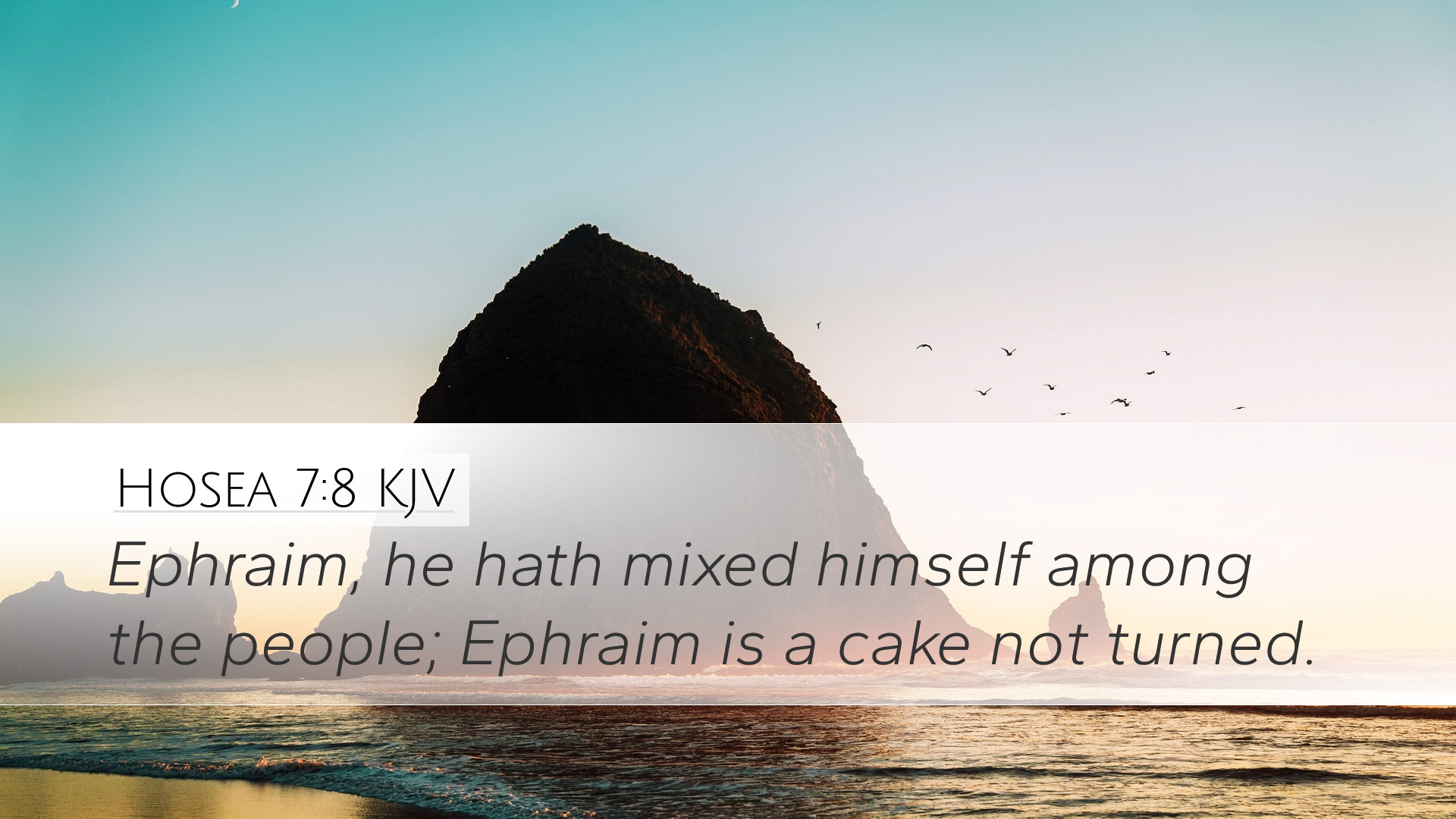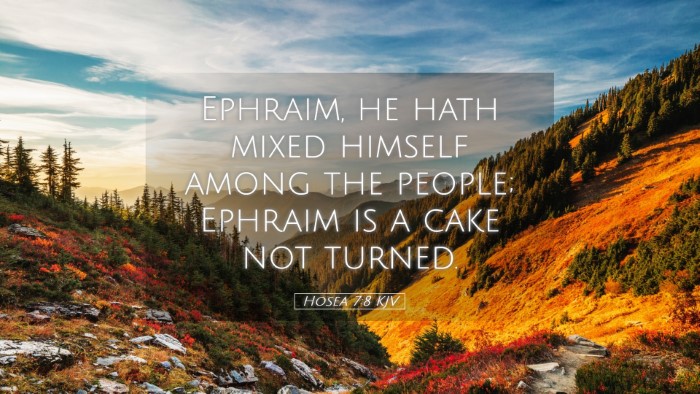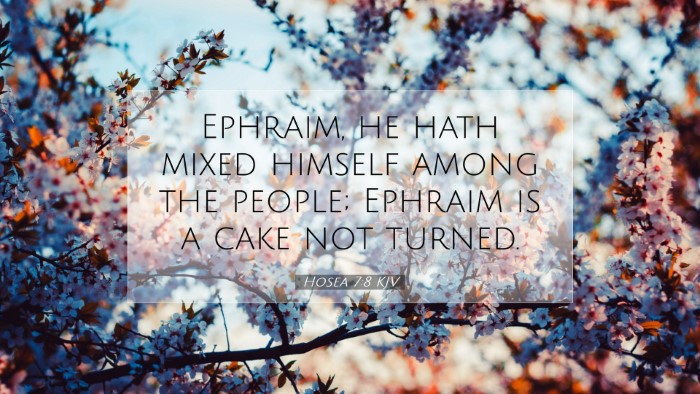Old Testament
Genesis Exodus Leviticus Numbers Deuteronomy Joshua Judges Ruth 1 Samuel 2 Samuel 1 Kings 2 Kings 1 Chronicles 2 Chronicles Ezra Nehemiah Esther Job Psalms Proverbs Ecclesiastes Song of Solomon Isaiah Jeremiah Lamentations Ezekiel Daniel Hosea Joel Amos Obadiah Jonah Micah Nahum Habakkuk Zephaniah Haggai Zechariah MalachiHosea 7:8
Hosea 7:8 KJV
Ephraim, he hath mixed himself among the people; Ephraim is a cake not turned.
Hosea 7:8 Bible Commentary
Commentary on Hosea 7:8
Hosea 7:8 states: "Ephraim, he hath mixed himself among the people; Ephraim is a cake not turned." This verse encapsulates the dysfunctional state of Israel (Ephraim) during the prophetic period of Hosea, reflecting both spiritual and moral decay. The imagery used here invites a deeper exploration into the themes of identity, belonging, and the consequences of abandoning divine covenant.
Contextual Background
The book of Hosea addresses the northern kingdom of Israel at a time when it was characterized by political instability, social injustice, and spiritual infidelity. Hosea, being directed by God, uses vivid metaphors to depict how the people have strayed from their covenant relationship with Yahweh.
Exegesis of Key Elements
Ephraim and Its Significance
Ephraim is often used in the prophetic literature as a representation of the entire northern kingdom. It serves as a symbol of both the pride and downfall of Israel due to its collective actions. Albert Barnes elucidates that Ephraim signifies not just a geographical location but embodies the nation’s unfaithfulness to God.
Mixed Among the Peoples
- Assimilation: The phrase "mixed himself among the people" indicates that Ephraim has blended with the surrounding nations. This is not merely a physical mingling, but a spiritual compromise that leads them away from God’s commandments.
- Identity Crisis: Matthew Henry notes that this mixing represents an identity crisis for Israel; they have forsaken their unique calling as God's chosen people, opting instead for a syncretism that dilutes their spiritual integrity.
- Rejection of Distinction: Adam Clarke emphasizes that their mingling reflects a conscious rejection of the separateness that was intended for them as a holy nation.
A Cake Not Turned
The metaphor of a cake not turned provides rich insight. It suggests unpreparedness and susceptibility to ruin. A cake that is not turned will burn on one side while remaining raw on the other, signaling inefficiency and mismanagement. This imagery can be dissected as follows:
- Incomplete Spiritual Formation: Henry draws attention to the idea that Ephraim, in failing to fully commit to God's ways, remains spiritually undercooked, neither fully alive in faith nor completely lost.
- Divine Judgment: The rawness of the cake may symbolize God’s pending judgment upon Ephraim for their half-hearted devotion. Clarke points out that their inability to commit leads to divine disfavor.
- Consequences of Half-Heartedness: Barnes suggests that the lack of turning the cake signifies a failure in the duties of turning back to God, leading to indifference toward their spiritual wellbeing.
Theological Implications
God’s Faithfulness Despite Human Infidelity
Even amidst the condemnation, there lies a profound theology of God’s relentless pursuit of His people. Hosea’s message underscores God’s unwavering love, even as He addresses their shortcomings. The reminder of their mixing among the nations serves as a call to repentance rather than a final condemnation.
Implications for the Modern Believer
This passage resonates with contemporary applications about the church's engagement with the worldly culture. The call for believers today is to remain distinct in their faith while engaging the world. The challenge lies in avoiding the pitfalls of assimilation that Ephraim faced.
Conclusion
Hosea 7:8 serves as a poignant reminder of the dangers of losing one's identity and commitment to God in favor of cultural conformity. It beckons believers and scholars alike to reflect on their own spiritual health and the degree to which they may allow worldly influences to hinder their relationship with God. The rich insights from Matthew Henry, Albert Barnes, and Adam Clarke provide depth to our understanding, encouraging a return to a steadfast commitment to divine truth.


